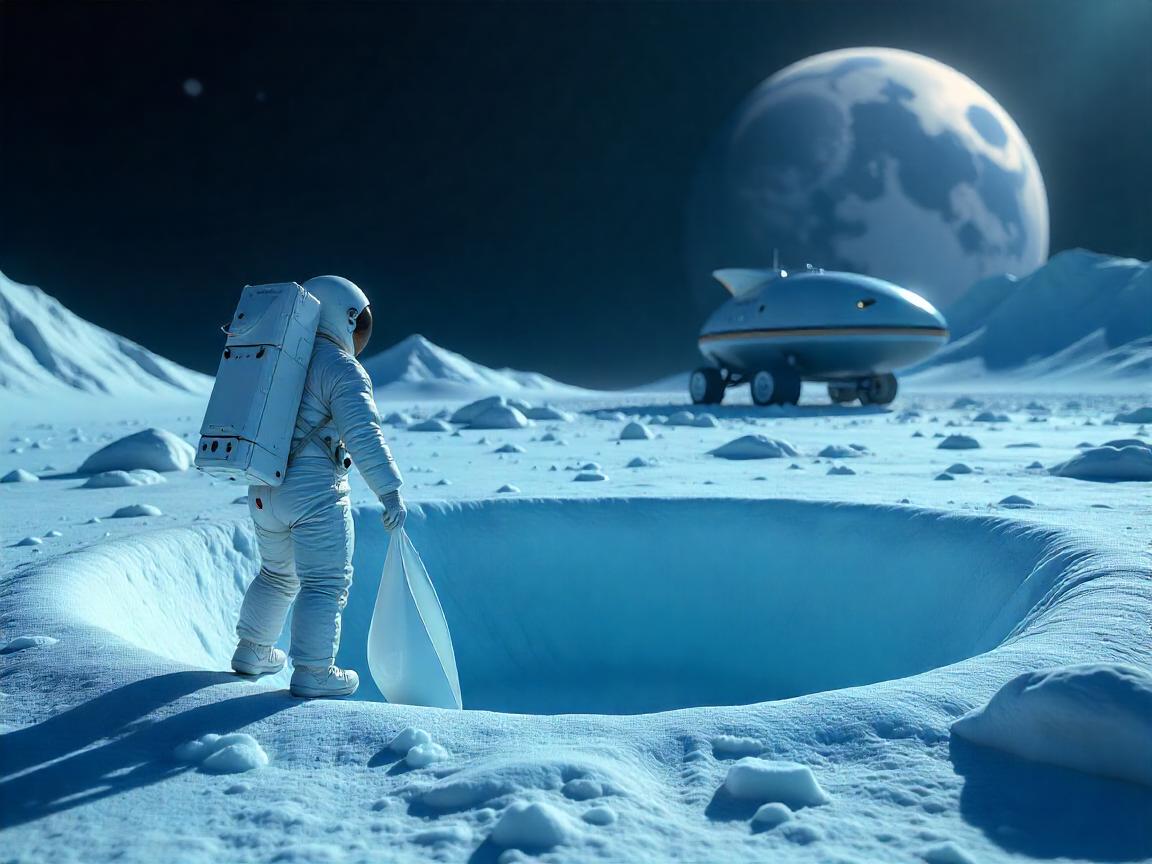
Introduction: The Moon’s Frozen Secrets
Suppose you discover a time capsule billion-years buried down, one that would answer how the water reached the Earth and whether life exists in other planets. Precisely, that is what NASA is pursuing through the Artemis III mission that will land astronauts in the vicinity of the South Pole of the Moon in 2026. In sharp contrast to the dusty plains of Apollo, billions of tons of frozen water are held in secret in permanent-shade craters, in this region. What scientists refer to as a game-changer in space exploration, it linked to our past in the cosmos.
What is the importance of this? Water is life. This can be broken down into oxygen, to be used by breathe and hydrogen, which is to serve as rocket fuel thus making Moon a cosmic gas station when traveling to Mars. However, the real story here is bigger: this ice could provide answers to the early history of the Earth, and even of the emergence of life. Artemis III is not because China and the likes of SpaceX are competing to the same destinations sets, it is also because it is a matter of geopolitical chessboard.
Why the Lunar South pole? The search of Frozen Gold
Decades ago, scientists had assumed the Moon to be bone-dry, until in 2009 when NASA sent LCROSS to crash a rocket on the surface of the Moon, and found water ice in the debris. And lastly, the SOFIA observatory detected water molecules sticking to sun-lit lunar soil in 2020 against expectations. NASA now aims Artemis III at Shackleton Crater — a cold, deep gash with temperatures of -250°C, where ice buried at that depth hasn’t seen sunlight in eons.
However, the problem of water is not only drinking. It is politics of power.
- Rocket fuel: Separation of H 2 O into oxygen and hydrogen would make the deep- space travel much cheaper.
- Scientific goldmine: It is possible that this ice could entrap the ancient particles of the solar wind or organic molecules.
- Interplanetary road trip: A similar area is the target of China, 2026 Chang e – 7 mission; raising concerns that resources on the Moon will be a race.
Rewriting History: What Lunar Water Reveals About Earth
This is mind blowing: The ice on Moon may even be older than oceans on earth. There are theories explaining that water reached the planet through bird crushing, several billion years ago, and the Moon has no erosion thus it was well preserved. With the help of analyzing isotopes it was possible to understand whether Earth water had one single source.
Case Study: Chandrayaan 3 of India
India A rover has discovered sulfur on the South Pole hinting at past volcanic eruptions last year. Were the volcanoes at one point gushing water vapor then it would be a sign that the moon had a temporary atmosphere, possibly, lakes as well. The planetary scientist Dr. Paul Hayne at CU Boulder explains that it is not only about the Moon. It is about putting together how habitable worlds evolve.
From Science Fiction to Reality: The Moon as a Stepping Stone
NASA’s vision? Sustainable lunar engagement by the mid-2030s with the first step to be Artemis III. The designated Starship lander is spaceX, which has to demonstrate its ability to take astronauts to this dangerous land safely. In the meantime, corporations, such as Blue Origin, are going to design refueling depots, whereas the European Space Agency is experimenting with 3D-printed habitats.
We are about to be told, however:
- Freezing cold: Rovers are liable to freeze in dark areas.
- Moral issues: Who has the right to the water in the moon? The language in the 1967 Outer Space treaty, prohibiting claims of territorial jurisdiction is ambiguous.
Expert Opinion Dr. Casey Honniball (NASA Goddard)
It is not that we are merely returning to the Moon we are going to live there. The magic is in Water and Artemis III is the first actual possibility, we have to get at it.”
Conclusion: The Next Giant Leap
Artemis III is not simply a mission but the beginning of a new age of exploration of the human species. Be it solving the clues of the formation of the Earth or powering a colony in Mars, one thing is clear, the Moon is not dead rock anymore. It is a living archive, a cosmic gas station, and eventually, perhaps, some day, a second home.
Final Thought:
Suppose we get the evidence that water on Earth initially belonged to the Moon, are we all to any degree lunar immigrants?